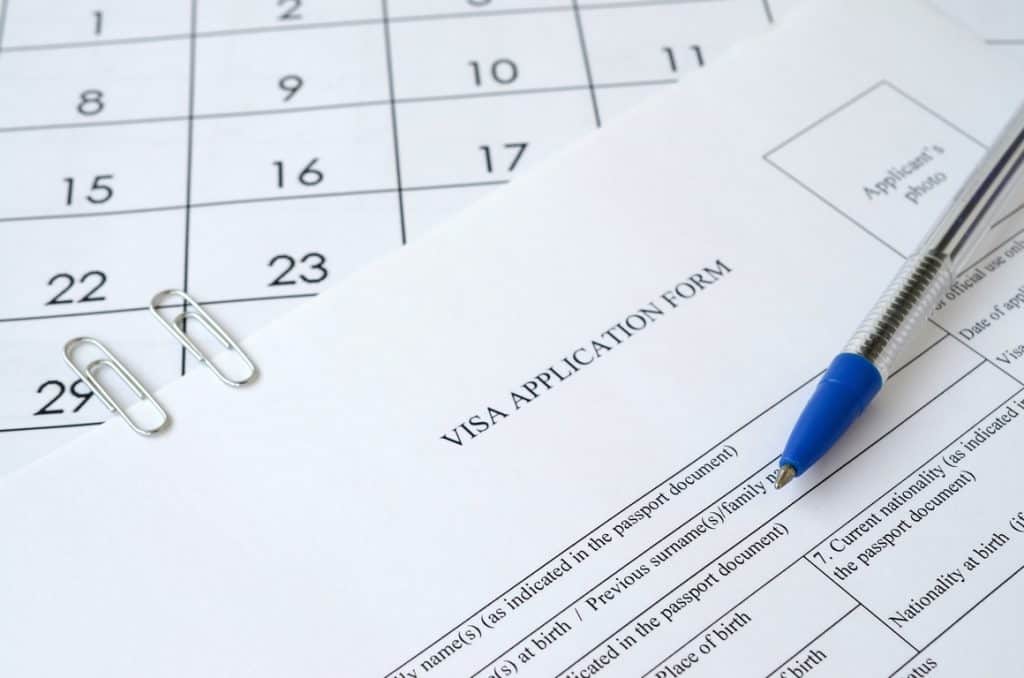

Blog about Australia. Read interesting articles about Australian visa as well as other interesting facts about this beautiful country.
January 25, 2023

The Australian Tourist Visa, also known as the Visitor Visa (Subclass 600), is an entry permit issued for foreign citizens who wish to visit Australia for tourism purposes. This visa type allows eligible travelers to attend a sightseeing tour, go on a cruise, participate in cultural festivals, or simply meet with family and friends.
Usually, the Australian Tourist Visa is issued for a period of 3 months. However, in certain circumstances, the permit may remain valid for up to 12 months. Before proceeding with the visa application, it is recommended to make sure you meet all the eligibility criteria.
There are a few basic documents that are required while applying for the Australian Tourist Visa (Subclass 600). The criteria include preparing relevant documents verifying your identity and proving your wish to be a genuine visitor in Australia.
The identity documents are necessary to verify your identity while applying for an Australian visa. The most important document is your valid passport which contains all the relevant information, including personal details, passport number, issue date, and expiry date. The travel permit also contains your biometric photo.
Required documents:
-national identity card (if applicable)
-proof of name change (if applicable)
-name change documents from the relevant authority
The genuine visitor documents serve as proof of planning only a temporary visit to Australia with no intention of requesting permanent residency. They describe your reasons for traveling but also could be treated as a statement that you will do well abroad.
READ: What Is ImmiAccount and How to Create One: A Step-by-Step GuideRequired documents:
-description of the purpose behind the travel
-declaration of sufficient funds (bank statements, tax records)
-declaration to return to your home country (from the relevant authority)
-proof of having plans to return to your home country
-proof of pursuing education in your home country
-proof of continuing employment in your home country
-proof of having immediate family members in your home country
-proof of being an owner of major assets in your home country
-letter of invitation (from an Australian friend or relative)
-describing the relationship
-stating the purpose of your visit
-stating the length of your visit
-declaring a will to pay for your visit

Apply online for ETA Australia CLICK TO APPLY ONLINE
It is essential that you are considered of good character if you wish to visit Australia. Details on the character requirements are described in the Migration Act 1958, section 501.
During the visa application process, you may be asked to provide a police certificate, a military certificate, or a letter of good conduct issued by your employer. Sometimes it is also essential to complete the character assessment and character statutory declaration.
You may not meet the character requirements for the Australian Tourist Visa if you:
-have a criminal record
-have been convicted of serious crime
-have been convicted of escaping from immigration detention
-have been a member of a group or organization involved in criminal conduct
-are suspected of engaging in criminal conduct in Australia
-are suspected of inciting discord in the Australian community
READ: Australian Visa for San Marino citizens - Application and Requirements-are suspected to be a threat to the Australian community
The general health requirements for the Australian Tourist Visa are:
-to be in good health overall
You may be asked to undergo additional health examinations. The need to schedule a doctor visit depends on numerous factors, some of which are the length of your journey to Australia or the level of tuberculosis risk in your country.
However, if you have been to a medical examination during the last 12 months before your planned arrival in Australia, you may be exempt from this visa requirement.
It is essential to undergo a medical examination if the travel from your home country to Australia could be considered a threat to public health, with a high risk of polio or EVD.
The applicants for the Tourist Visa may be required to undergo specific medical examinations (including chest x-ray) if:
-they are pregnant
-they are aged over 75 years
-they had contact with tuberculosis
-they expect to require medical treatment in Australia
To meet the health requirements for the Tourist Visa, you must be free from any disease or chronic condition that:
-may be a significant healthcare service cost to the Australian community
-may be a significant community service cost to the Australian community
-may limit the access of Australian residents to healthcare and community services
It is essential that all the necessary documents are originally issued in English or translated to English by a sworn translator. Documents in other languages will not be accepted.
READ: Processing Time for Australian Tourist VisaTranslators in Australia must be accredited by the National Accreditation Authority for Translators and Interpreters. However, translators outside Australia do not have to be accredited
Citizens of countries that are considered high-risk must meet some additional requirements to be allowed entry to Australia on the Tourist Visa.
-bank statements (personal and business) showing consistent savings history
-documents proving good financial status
-documents showing possessed funds or assets
-documents showing taxation for the last 3 years
Moreover, if your friend or relative in Australia will be paying for your visit, you should obtain a Statutory Declaration stating the evidence of their financial capacity to do so.
-letter from the employer stating your position and salary, describing the length of employment, and confirming the contact details of the person providing the letter (for employed travelers)
-evidence of business registration (for self-employed travelers)
-evidence of retirement (for retired travelers)
International students who wish to visit Australia on a Tourist Visa should provide evidence of enrolment, such as an official letter from an educational institute.